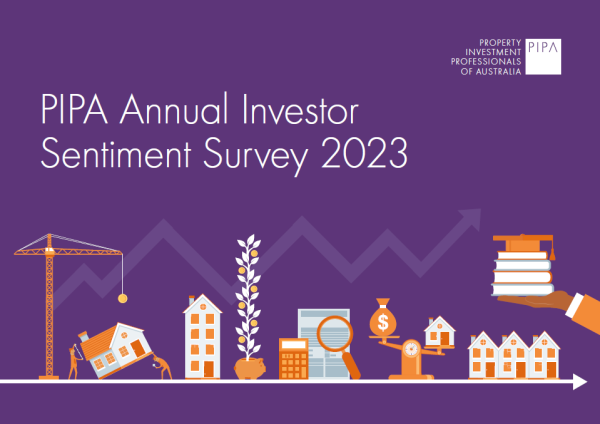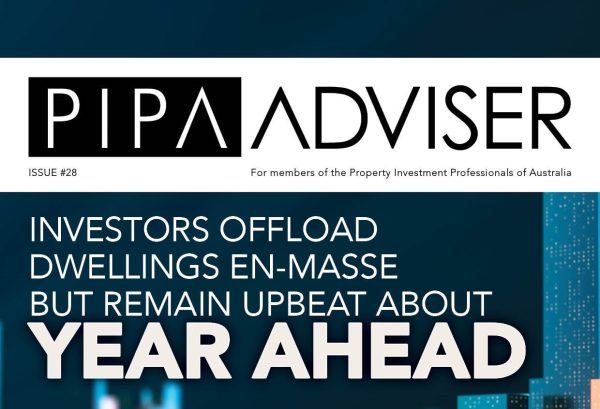Real estate and construction weigh in on negative gearing
Feb 2024Karen Millers
Categories
Location ReportsMedia releasesNational market updatesPersonal advisersPIPA AdviserPIPA Annual Investor Sentiment SurveysPIPA Member ProfilesPIPA video updatesPIPA webinarsPodcastsProperty advisersProperty newsLatest Articles
Rent rises ease but crisis’ link to population density found to be tenuous
Jordan van den Berg: The ‘Robin Hood’ TikToker taking on Australian landlords
Victorian property investors face yet another new property tax as council tests levy
Rentvesting in Australia: A deep dive
‘More chance of winning lotto’ than housing targets being met
As corners of the country push for the government to re-evaluate negative gearing, the real estate and construction industries have voiced their view on any policy changes.
Unequivocally, representatives from the Real Estate Institute of Australia (REIA), the Property Investment Professionals of Australia (PIPA), the Housing Industry Association (HIA), and Master Builders Australia have called for the policy not to be touched.
And while Treasurer Jim Chalmers recently shut down any suggestion that the federal government is considering making changes to the tax setting that allows investors to deduct rental losses against their income, pressure from the Greens has caused some advocates of the policy to grow nervous.
Earlier this week, Greens leader Adam Bandt said his party would push for changes to negative gearing and the capital gains tax discount in return for their support passing the government’s Help to Buy legislation.
REIA president Leanne Pilkington urged the government to stick with its current policy.
“Adam Bandt’s agenda continues to exacerbate Australia’s housing issues. Last year, it was rent freezes and controls; this year, it’s negative gearing and capital gains tax. With over 2.2 million family investors supplying 97 per cent of rentals, they are part of the solution, not the problem,” Ms Pilkington said.
With concerns that changes to the negative gearing tax settings would discourage investment activity, the REIA warned that any policy changes could cause an already tight national rental market to contract further.
Ms Pilkington added that in that scenario, which would push rental prices higher, impacts would be felt across the housing market.
“Removing incentives like negative gearing will make it harder for renters saving for a home deposit,” Ms Pilkington remarked.
PIPA chair Nicola McDougall made a similar argument.
“The ability to save a property deposit won’t improve by attacking investors. In fact, those hoping to buy their first home will have even less money to save if their rents suddenly skyrocket because of a mass exodus of landlords,” she said.
HIA managing director Jocelyn Martin also cautioned the government to consider how negative gearing adjustments might impact the wider housing sector.
While she noted that HIA welcomed much of the government’s housing agenda and stood ready to work towards its home building target, she asked the government to focus on stabilising the market by rejecting changes to the tax policy.
“The current commentary and ‘threats’ on further changes to tax settings [are] acting as a significant deterrent to productivity and increasing housing supply,” Ms Martin said.
“This is coupled with the uncertainty from interest rate rises, new complex industrial relations reforms on businesses, the introduction of widespread changes to the building code and layers of approvals and regulatory change.”
These factors, she opined, were “all coming together to substantially affect market confidence and is reflected in building activity data which is indicating decade low numbers for future new home construction”.
Ms Martin urged all sides of the government to “work in a coordinated way to commit to providing stable and reliable policies and measures to support and grow the building industry – with the ultimate goal of building these much-needed homes”.
Her comments were echoed by Master Builders’ CEO Denita Wawn, who said that the organisation’s modelling had projected a dampening effect of negative gearing adjustments on the construction industry during the last time a change was proposed, during the 2019 election.
“The policies would have seen a fall in the number of homes being built, thousands of job losses and billions of dollars wiped off the value of residential building activity,” Ms Wawn said.
“Fast forward to 2024, and we’re now in an even worse economic and housing environment, with renters and mortgage holders bearing the brunt of rapid interest rate rises and high inflation,” she added.
The association is asking the government to stay focused on policies that will increase Australia’s capacity to build new dwellings.
“Across the whole housing spectrum, the common constraint is supply. In order to put downward pressure on housing inflation and high rents, we need to build more homes,” Ms Wawn said.
Originally Published: Juliet Helmke | realestatebusiness.com.au | 16 February 2024
“Licensed by Copyright Agency. You must not copy this work without permission.”




